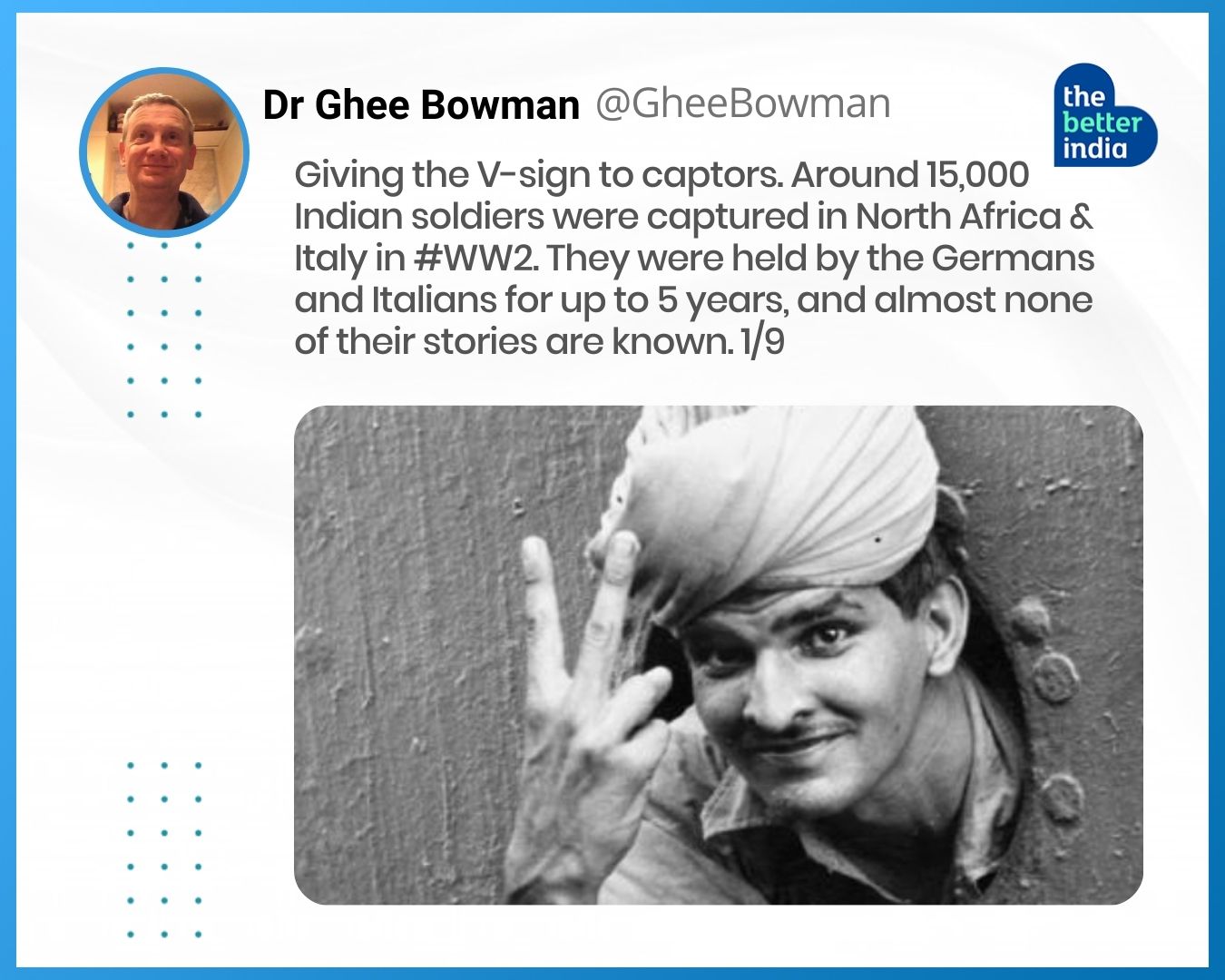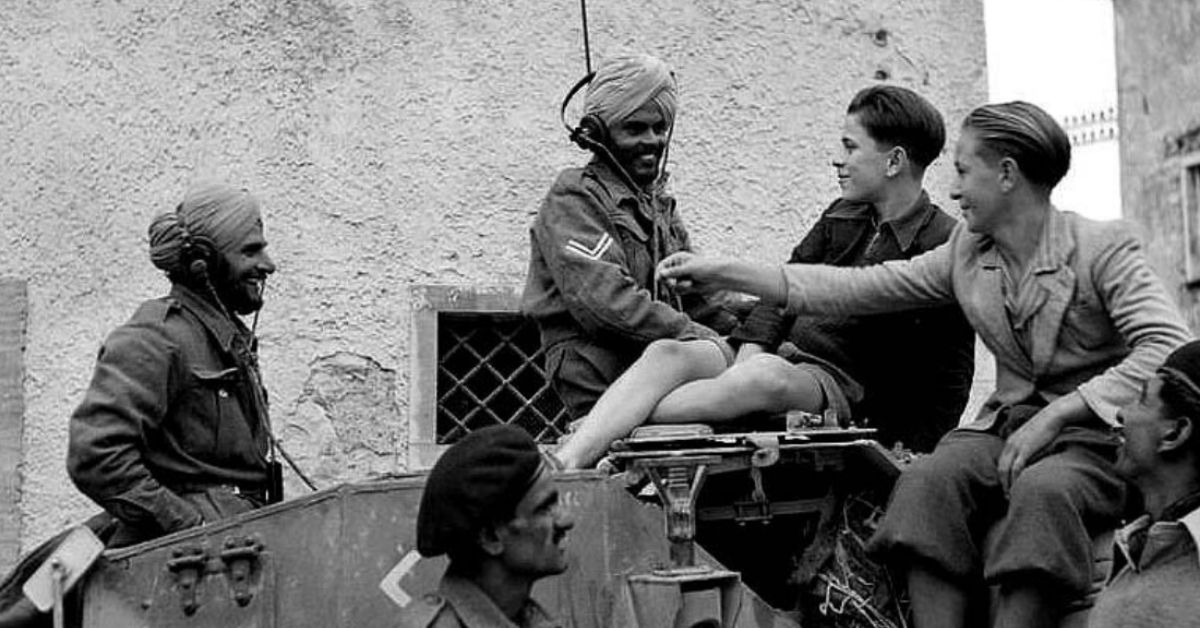What came of the 2.5 million Indian soldiers that the British sent to fight the Axis powers in World War II? Or of the 87,000 soldiers who died, and the thousands imprisoned by Germans and Italians?
In 2018, the UK’s Untold Lives blog found letters penned by Indian prisoners of war (POW) in Italy and North Africa, which can perhaps answer these questions.
These letters tell the tales of varying experiences the prisoners faced, depending on who their captors were. “Letters archived at the British Library, documented in military censorship reports, reveal how such experiences are inflected by differences in war fronts, military rank, individual agency — and sheer luck.”
The identities of most of these prisoners remain unknown. Historian Dr Ghee Bowman, author of the acclaimed The Indian Contingent: The Forgotten Muslim Soldiers of Dunkirk, is attempting to lift the veil on these identities by reaching out to families of POWs through archival photographs.

Dr Bowman wrote, “I grew up in the 60s and 70s, with Colditz on TV, The Great Escape at the cinema, so I thought that POW stories were all about posh Englishmen with moustaches and vaulting horses. I didn’t realise that there were Indians at Colditz, that there were thousands of Indian soldiers who were made to work for the Germans, and that – amazingly – the largest successful escape by any POWs in the war was a group of Indians. There’s so much to discover and so much to tell.”
In the thread, Dr Bowman also provided examples of what sustained the prisoners while they awaited release. “The vast majority of Indian POWs did what most prisoners did – sat and waited. Captain Anis Ahmad Khan of #ForceK6 was sustained by prayer, by playing sports, and by parcels from the Indian Comforts Fund He was held in POW camps from 25th June 1940 till 12th April 1945.”
Dr Bowman said, “Those 15,000 POWs must have thousands of descendants alive today, some of them with stories of hardship and escape, endurance, collaboration, maybe even romance. I’d love to hear from them.”
You can find Dr Bowman’s full Twitter thread here.
(Edited by Yoshita Rao)
If you found our stories insightful, informative, or even just enjoyable, we invite you to consider making a voluntary payment to support the work we do at The Better India. Your contribution helps us continue producing quality content that educates, inspires, and drives positive change.
Choose one of the payment options below for your contribution-
By paying for the stories you value, you directly contribute to sustaining our efforts focused on making a difference in the world. Together, let's ensure that impactful stories continue to be told and shared, enriching lives and communities alike.
Thank you for your support. Here are some frequently asked questions you might find helpful to know why you are contributing?

